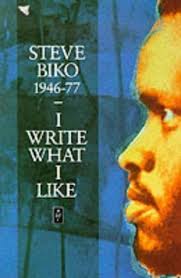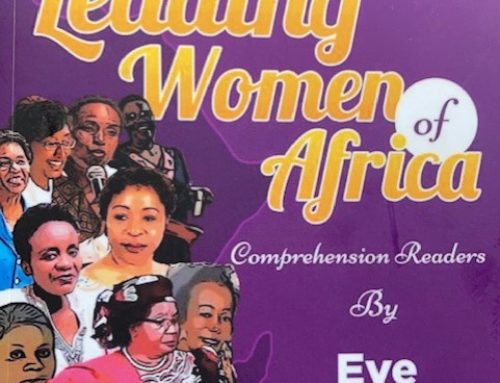i am still slowly making my way through Steve Biko’s ‘I write what I like’ and here is a passage that i marked a while ago from Chapter 8: Some African Cultural Concepts:
One of the most fundamental aspects of our culture is the importance we attach to Man [by which i think he is referring to people as opposed to individual – brett] . Ours has always been a Man-centered society. Westerners have on many occasions been surprised at the capacity we have for talking to each other – not for the sake of arriving at a particular conclusion but merely to enjoy the communication for its own sake. Intimacy is a term not exclusive for particular friends but applying to a whole group of people who find themselves together either through work or residential requirements.
In fact, in the traditional African culture, there is no such thing as two friends. Conversation groups were more or less naturally determined by age and division of labour. Thus one would find all boys whose job was to look after cattle periodically meeting at popular spots to engage in conversation about their cattle, girlfriends, parents, heroes, etc. All commonly shared their secrets, joys and woes. No one felt unnecessarily an intruder into someone else’s business. The curiosity manifested was welcome. It came out of a desire to share. This pattern one would find in all age groups. House visiting was always a feature of the elderly folk’s way of life. No reason was needed as a basis for visits. It was all part of our deep concern for each other.
Take a moment to pause there and think about what you’ve read. Anything stand out for you? A concept that seemed foreign but sounded quite nice actually? Or does this have a negative ‘not for me’ kind of vibe?
These are things never done in the Westerner’s culture. A visitor to someone’s house, with the exception of friends, is always met with the question, “What can I do for you?”. This attitude to see people not as themselves but as agents for some particular function either to one’s disadvantage or advantage is foreign to us. We are not a suspicious race. We believe in the inherent goodness of man. We enjoy man for himself. We regard our living together not as an unfortunate mishap warranting endless competition among us but as a deliberate act of God to make us a community of brothers and sisters jointly involved in the quest for a composite answer to the varied problems of life. Hence in all we do we always place Man first and hence all our action is usually joint community oriented action rather than the individualism that is the hallmark of the capitalist approach. We always refrain from using people as stepping stones. Instead we are prepared to have a much slower progress in an effort to make sure that all of us are marching to the same tune.
How about that section? This might be a revolutionary concept for some of us. Think about how we do friendship and community and compare/contrast it with what Steve is saying here.
Nothing dramatises the eagerness of the African to communicate with each other more than their love for song and rhythm. Music in the African culture features in all emotional states. When we go to work, we share the burdens and pleasures of the work we are doing through music. This particular facet strangely enough has filtered through to this present day. Tourists always watch with amazement the synchrony of music and action as Africans working at a road side use their picks and shovels with well-timed precision to the accompaniment of a background song. Battle songs were a feature of the long march to war in the olden days. Girls and boys never played any games without using music and rhythm as its basis. In other words with Africans, music and rhythm were not luxuries but part and parcel of our way of communication. Any suffering we experienced was made much more real by song and rhythm. There is no doubt that the so called “Negro spirituals” sung by Black slaves in the States as they toiled under oppression were indicative of their African heritage.
The major thing to note about our songs is that they never were songs for individuals. All African songs are group songs. Though many have words, this is not the most important thing about them. Tunes were adapted to suit the occasion and had the wonderful effect of making everybody read the same things from the common experience. In war the songs reassured those who were scared, highlighted the determination of the regiment to win a particular encounter and in the case of the Black slaves, they derived sustenance out of a feeling of togetherness, at work the binding rhythm makes everybody brush off the burden and hence Africans can continue for hours on end because of this added energy.
Attitudes of Africans to property again show just how unindividualistic the African is. As everybody here knows, African society had the village community as its basis. Africans always believed in having many villages with a controllable number of people in each rather than the reverse. This obviously was a requirement to suit the needs of a community-based and man-centered society. Hence most things were jointly owned by the group, for instance there was no such thing as individual land ownership. The land belonged to the people and was merely under the control of the local chief on behalf of the people. When cattle went to graze it was on an open veld and not on anybody’s specific farm.
Farming and agriculture, though on individual family basis, had many characteristics of joint efforts. Each person could by simple request and holding of a special ceremony, invite neighbours to come and work on his plots. This service was returned in kind and no remuneration was ever given.
Poverty was a foreign concept. This could only really be brought about to the entire community by an adverse climate during a particular season. It never was considered repugnant to ask one’s neighbours for help if one was struggling. In almost all instances there was help between individuals, tribe and tribe, chief and chief etc. even in spite of war.
Hm, definitely think there is much to be appreciated and possibly learned and assimilated from here. What jumped out for you the strongest as you were reading this piece?






[…] [For the next passage looking at Community over Individualism, click here] […]
Though it seems foreign to my brain. I know that this is what we as humans need and miss in life.
Its been a struggle to practice it, but I try every day